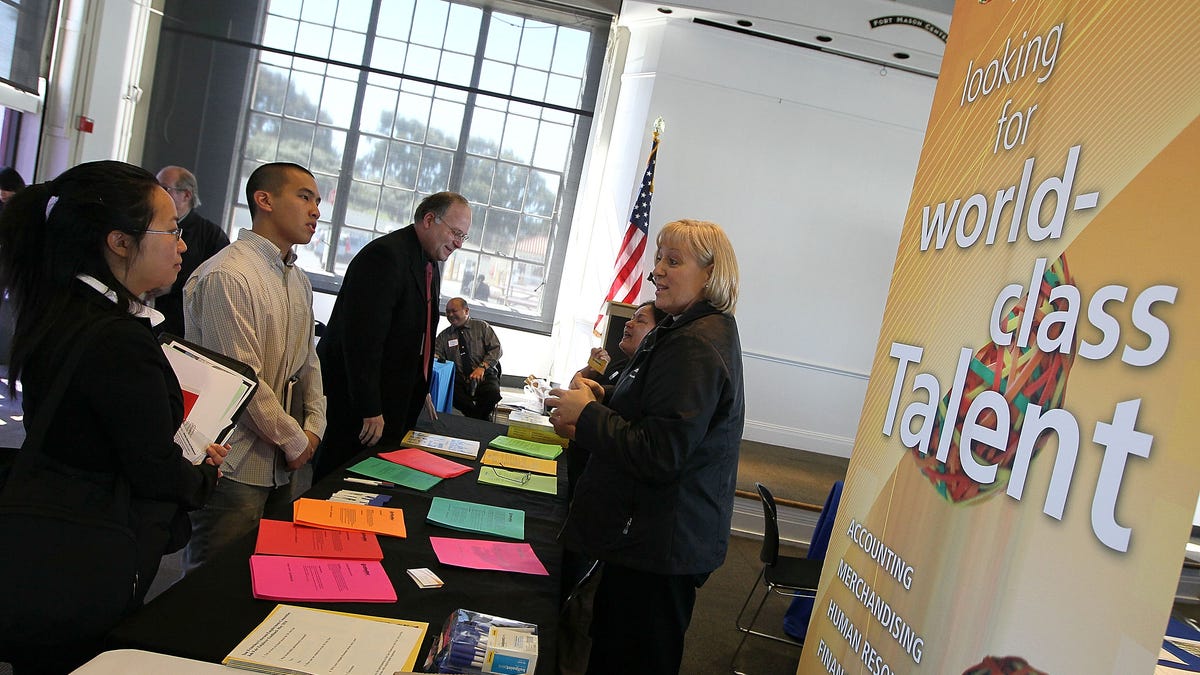A shortage of tech workers? Not so fast
Although the U.S. is minting more grads with computer and information science and engineering degrees, guest workers make up a large and increasing portion of the IT labor market.

For years, Silicon Valley has bemoaned a shortage of skilled domestic labor, the complaint being that the pool of quality technical talent in the U.S. has atrophied to the point where a failing educational system has left companies with no other choice except to import more skilled IT help from abroad. Recently, Facebook's Mark Zuckerberg and LinkedIn's Reid Hoffman came out in support of a project they termed FWD.us to push a new immigration bill that among other things would involve allocating more visas for workers with special skills. The latest version of the Senate's immigration bill would raise the annual limit on H-1B visas, a good number of which would go to people with IT backgrounds. Zuckerberg summed up the logic behind that push this way.
To lead the world in this new economy, we need the most talented and hardest-working people. We need to train and attract the best. We need those middle school students to be tomorrow's leaders.
Given all this, why do we kick out the more than 40 percent of math and science graduate students who are not U.S. citizens after paying to educate them? Why do we offer so few H-1B visas for talented specialists that the supply runs out within days of becoming available each year, even though we know each of these jobs will create two or three more American jobs in return? Why don't we let entrepreneurs move here even when they have what it takes to start new companies that will create even more jobs?
It turns out the narrative isn't that straightforward and, in fact, masks a more complex reality than we've been led to believe.
U.S. colleges now graduate 50 percent more students with degrees in computer and information science and engineering than get hired into those fields each year, according to the findings of a report by the nonpartisan Economic Policy Institute. The co-authors offer what amounts to a counterintuitive take on a legislative hot potato. Even as tech CEOs continue to press legislators to let high-skill -- and generally lower-cost -- guest workers in the country, the report argues that the U.S. labor market already has a surfeit of Americans with skills in science, technology, engineering, and mathematics -- the so-called STEM labor market -- even as U.S. companies continue to source temporary talent from abroad.
"We really already accept a generous number of these types of migrants," said co-author and Georgetown professor B. Lindsay Lowell. "You can talk a long time about what temporary status means and the implications for the workers and for the workforce generally and for our economy. I don't think the argument here is that foreign workers aren't good or they're not productive. I think the argument is yeah, I think we want foreign workers and want our employers access to them. But the question is in what amount and is more better? And unfortunately, I think a lot of people conflate the obvious difficulties in making the system work, the kind of bottlenecks that we have in the visa system with numbers...
"You have to really sit back and ask a little bit, especially after having been presented with the facts about domestic supply if you believe in the law of supply and demand, at what point is more, better. and how much more. I think those are the tough questions we need to ask."Noted fellow study co-author and Rutgers professor Hal Salzman:
"There's just a large supply of STEM graduates," he said. "You can't just see in the numbers a failure of various colleges and universities to produce a sufficient supply."
During the run-up to the dot-com bubble of the late 1990s, the number of students pursuing computer science doubled, according to Salzman. After the dot-com bust, he said, the market behaved the way one would expect it to as average wages plummeted and unemployment shot up. Nowadays, employment and wage levels in many IT sectors remain flat, hovering around their late 1990s levels. Yet just one of every two U.S. students with STEM degrees finds employment in their chosen profession. In part, that's because many of those slots are getting filled by lower-paid guest workers.
Salzman said that he had "fair confidence" that between one-third and one-half of the new openings get filled by foreign-born temporary employees "who tend to be younger and less experienced" as they move into entry-level jobs. A few other data points to consider:
- About a third of the IT workforce has an IT-related college degree.
- 36 percent of IT workers do not hold a college degree at all.
- 24 percent of IT workers have a four-year computer science or math degree.
This is going to fan the controversy over the direction of U.S. labor policy and whether it is helping to depress U.S. wages by letting companies pay guest workers rates that are too low to attract substantial numbers of Americans with similar skills.
As it should.

